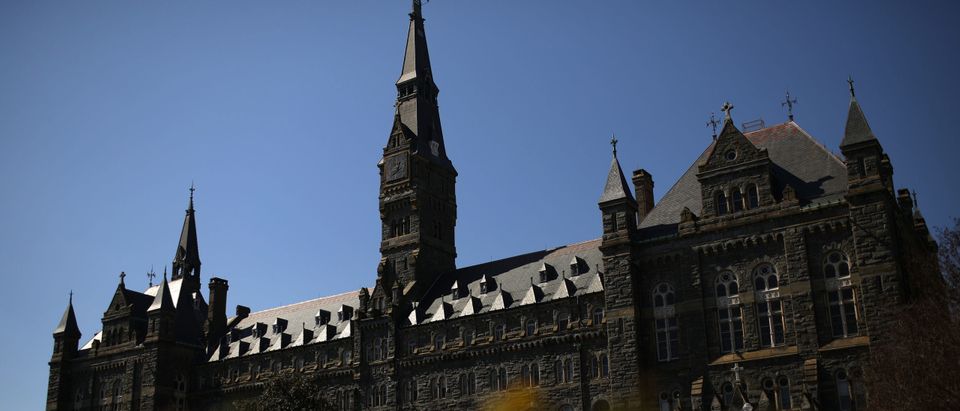A student organization within Georgetown Law is demanding a reduction in tuition prices after the university announced a return to virtual learning in January.
The co-presidents of Conservative and Libertarian Student Association (CALSA) at Georgetown Law, Luke Bunting and Elana Quint, sent a letter Dec. 30 to Georgetown President John DeGioia and Dean William Treanor. In it, they call the transition back to online learning the “latest in a series of disappointing decisions.” The duo argued that the decision imposed significant financial and psychological costs on students.
“The decision is frustratingly vague about whether mandatory virtual instruction will be limited to the end of January,” Bunting and Quint wrote. “The uncertainty of an in-person return not only comes at a psychological cost to students, but also a significant financial cost with arranging lease agreements, negotiating rent fees, and planning cross-country moves during the academic term.”
“We ask President DeGioia and the Law Center’s Dean Treanor to re-implement in-person learning for the full Spring semester,” the letter continues. “If the school moves forward with its plan for mandatory virtual learning, we call for an appropriate reduction in tuition to account for the compromised semester being provided to Georgetown Law students.”
Georgetown’s move back to virtual classes defies both science and common sense. As such, CALSA is calling on Pres. DeGioia and Law Dean Treanor to re-implement in-person learning or provide an immediate tuition refund to compensate students for another compromised semester. pic.twitter.com/LCMigItDbh
— CALSA-Georgetown (@CALSAGeorgetown) December 30, 2021
On Dec. 29, DeGioia emailed students informing them that the spring semester would begin via virtual instruction. Classes are scheduled to resume in person Jan. 31, according to the email. The university blamed the spike in cases of the Omicron variant for the return to online learning. (RELATED: Washington D.C. Mayor Muriel Bowser Expects Schools Will Alternate To ‘Situational Virtual Learning)
“Given that the surge in cases associated with the Omicron variant in the United States is projected to coincide with our return for the spring semester, we are adjusting our approach for the first few weeks of the semester,” DeGioia’s email reads.
The decision to move classes online was made in part by the school’s, Chief Public Health Officer Dr. Ranit Mishori. Mishori was caught attending an event at the Kennedy Center in D.C. amid the Omicron outbreak. The public health officers argued that masking and vaccines provide sufficient protection from the virus, leading some Georgetown students to wonder why such mitigation measures are insufficient for them.
“If these measures are sufficient for the Kennedy Center, we must ask why they are not sufficient to keep our students on-campus for the Spring semester,” Bunting and Quint said. “Our concern is that the school is knowingly sacrificing the quality of the education it provides in order to prevent an outcry from the vocal minority of students who demand maximalist COVID precautions in every situation, regardless of what the data says.”
Georgetown University did not respond to the Daily Caller’s request for comment.


